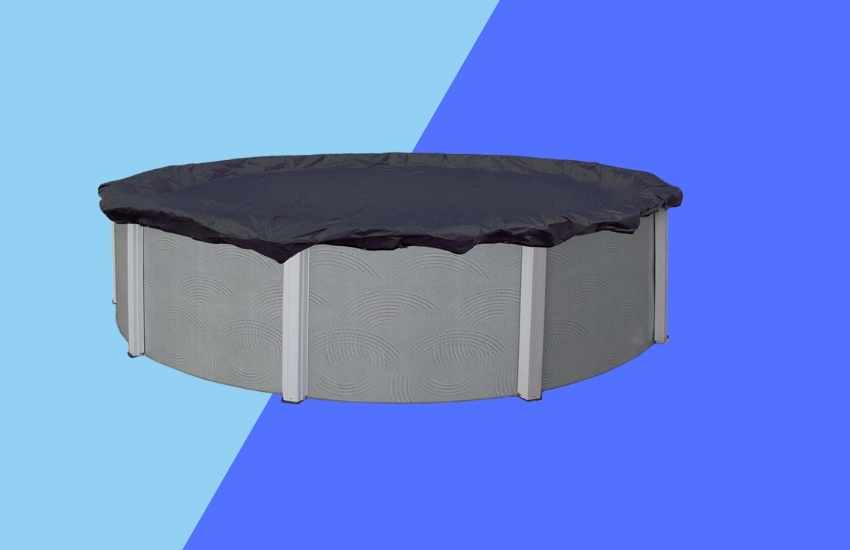
7 Best Swim Snorkels for Better Technique and Faster Swimming
Ready to throw down on a new swimmer’s snorkel? Here are reviews of the best swim snorkels for lap swimming.

Winter is coming, and you know what means, it’s time to close the pool! Here are three mistakes pool owners make when shitting down their pool for the season.
For the novice pool owner, closing your pool at the end of a (hopefully successfully awesome) summer can feel a little confusing.
And a lot depends on how cold things get over the course of the fall and winter where you live.
Questions quickly start popping up:
(Let’s be honest… that last question is probably the most pressing one ?)
With the leaves falling, and colder weather on the horizon, it can be easy to lapse into any one of these mistakes.
Here are the big boo-boo’s pool owners tend to make when winterizing an above-ground pool.
Pool owners know how crucial the right cover can be for their swimming pool.
Solar pool covers, for example, help cut down on energy costs, keep debris out of the water, and keep the temperature of the water at a comfortable level.
Using a regular pool cover overnight can also help keep organic matter from sinking into the pool, quickly blooming into algae and bacteria, and making your pool pump work overtime.
In other words, pool covers are kind of the best.
(In case you aren’t sold, here are six reasons to cover your above-ground swim pool.)
And when it comes to closing an above-ground pool, you want a sturdy and proper-fitting winter cover. Uncovered pools quickly get loaded up with leaves, branches, rainfall, and other debris, taxing the pool equipment and making a spring reopen require far more work than hoped for or expected.
Leaving a pool exposed over the winter will lead to hours shoveling leaves and other sludge and will also stain and ruin the pool liner.
The right winter pool cover can help you avoid a lot of the hassles and headaches that come from leaving a closed pool uncovered.
On the surface, it looks like draining your above-ground pool would make total sense. (And it does, if you are taking it down and storing it for the winter.)
But for those of you who own a pool that has vinyl walls, draining it will simply make it cave in on itself and warp the liner. Leaving water in the pool gives the walls of the pool added stability, and as they are located above the ground, this will make them sturdier in the face of wind, rain and snowstorms over the chilly months.
If you are worried about the pool turning into a giant block of ice during the winter, make sure to run the pool pump each day to keep the water circulating. Moving water doesn’t freeze.
Additionally, consider using a winterizer kit, as they are designed to help winter-proof the pool and the water within.
For inground pool owners, the same principle applies. As the ground around the pool gets cold and freezes, the risk of the tiles and concrete around the pool cracking begins to rise.
Leaving water in the pool helps to counter the effects and pressure of freezing weather from the outside of the pool.
Pool owners understand implicitly how much work is required to make the pool function optimally. And while closing it up at the end of the summer might lead you to think there is nothing to do until spring, that’s not the case.
Your pool still requires your help and protection over the course of the colder months. Whether we are talking about debris accumulating on the pool cover—including but not limited to leaves, snow, and ice—or clearing pooled water from the top of the cover, the work marches on.
Here are the two main ones:
Clear heavy water from the cover. While a little water on the top of the pool cover is okay as it can help settle the cover from blowing and rattling in the wind, once water starts to pool (on your pool, ha!), it might be time to remove it. For larger pools, a pool cover pump is an excellent tool for this particular task.
Remove leaves, branches and other debris. Fall makes for pretty colors in the trees, but it also means tons of organic debris falling from the sky. On your pool cover. Getting sludgy as it intermingles with rain water. Every so often, head out with a broom or a wet/dry vac and clean the cover of debris.
Hopefully this article cleared up some of the misconceptions you have as a new pool owner about closing your pool at the end of the swimming season.
Ultimately, make sure to double-check with your pool manufacturer for best practices on closing a pool over the winter months as each pool is a little different.
Like reading about pool maintenance and cleaning! Welp, I love writing about it and sharing my knowledge and experience. Below are some more articles that you might enjoy.
Everything You Ever Wanted to Know About Pool Test Kits. Test kits are one of your best friends when it comes to keeping the pool sparkling and ready for swimming. Here’s an overview of the different kinds of test kits, when to use them, and more.
7 Best Outdoor Pool Storage Boxes and Organizers for Pool Toys. Tidy up your pool by properly storing and protecting your pool toys and accessories. Here’s a look at the best options for pool storage boxes and organizers.
8 Best Gift Ideas for Pool Owners. Is there someone on your holiday shopping list who loves spending time by their swimming pool? If so, there is a chlorinated ton of great gift ideas for them.
Subscribe to the YourSwimLog.com newsletter and get tips and advice on how to swim faster every weekday morning, straight to your inbox.
Join 33,000+ swimmers, coaches, and swim parents learning what it takes to swim like a boss.
Unsubscribe anytime. Email will never be shared or sold.

Olivier Poirier-Leroy Olivier Poirier-Leroy is the founder of YourSwimLog.com. He is an author, former national level swimmer, two-time Olympic Trials qualifier, and swim coach.

Ready to throw down on a new swimmer’s snorkel? Here are reviews of the best swim snorkels for lap swimming.

Looking to get some new swim gear on a budget? Shop the best Black Friday deals for swimmers in this exclusive guide.

Looking for the best swimming app to maximize your time and effort in the water? Here’s a look at the top swim apps for conquering your swim workouts.

Wondering how often you should be testing the water in your pool or spa? Here’s a detailed look at how frequently you should test your pool. Your swimming pool and spa relies on being properly balanced to keep the water clean and safe for swimming. As a pool owner, you

Fed up with the effects and smell of chlorine in your hair after swimming? Here is how to remove chlorine from your hair once and for all.

The DMC Elite fins are high-performance training fins for competitive swimmers. Here’s a review of why these fins are flat-out awesome.

LANE 6 PUBLISHING © 2012-2024 · PRIVACY POLICY · RETURN POLICY · TERMS OF SERVICE · AFFILIATE DISCLOSURE